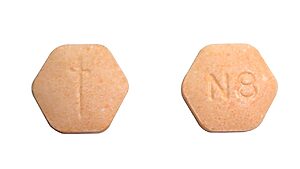Alcohol and cocaine use can negatively impact a person’s life. Alcohol abuse can lead to liver damage, brain damage, and death. At the same time, cocaine use can lead to heart damage, stroke, and seizures. Both substances are highly addictive, and can cause severe health problems. The combination of alcohol and cocaine can lead to organ failure, coma, and death.
Please don’t wait to get help if you’re facing addiction. At Texas Recovery Center, we have an alcohol rehab center and a cocaine rehab center in Texas. We provide our patients with evidence-based treatment and individualized care. Our goal is to help our patients overcome addiction and regain control of their lives. If you or someone you know needs help, please call us today at 214.295.6503.
The Effects of Cocaine on Someone’s Life
Cocaine can be a dangerous drug with a range of potential side effects. These cocaine side effects could include:
- Elevated blood pressure
- Increased heart rate
- Dilated pupils
- Restlessness
- Paranoia
- Auditory and tactile hallucinations
Cocaine use can also lead to:
- Seizures
- Stroke
- Heart attack
- Respiratory failure
- Coma
- Death
Cocaine is a powerful stimulant that increases alertness, energy, and euphoria. It also raises the heart rate, blood pressure, and respiration. A cocaine high only lasts for a short time, so people often take multiple doses in a row to maintain the feeling. Multiple doses put a person at risk for overdose or heart attack. Additionally, the drug is very addictive, and people can develop a tolerance to the drug, which leads to larger doses and more dangerous consequences.
Side Effects of Alcohol
Alcohol is legal and socially accepted, but that doesn’t mean it’s safe. It can negatively change a person’s life. Alcohol abuse can lead to liver damage, brain damage, and death. A person needs to understand how alcohol can affect them. The short-term effects of alcohol abuse can include:
- Slurred speech
- Drowsiness
- Vomiting
- Diarrhea
- Headache
- Breathing difficulties
- Distorted vision and hearing
- Impaired judgment
- Reduced reaction time
- Blackouts
The long-term effects of alcohol on a person can include:
- High blood pressure
- Stroke
- Heart disease
- Liver disease
- Cancer
- Brain damage
- Memory problems
- Depression
- Anxiety
Alcoholism is a severe problem that can destroy a person’s health, relationships, and career. Not to mention the serious effects that mixing alcohol with cocaine can have on a person’s life.
The Dangers of Mixing Cocaine and Alcohol
Cocaine is a stimulant taken by two percent of the American population, and it takes seconds to minutes to feel the effect. Alcohol is consumed by 140 million Americans and generally kicks in at around 10 minutes. About 17% of drinkers are heavy drinkers related to quantity and frequency, and 50% have participated in binge drinking in the prior month.
Polysubstance dependence is when a person is addicted to two or more substances. When cocaine and alcohol are used together, it creates a third substance in the body called cocaethylene. The dangerous combination of cocaine and alcohol is due to cocaethylene’s slower metabolism than cocaine or alcohol alone. This means that the effects of cocaethylene last much longer and are much more intense.
Combining Cocaine and Alcohol Creates Cocaethylene
The combination of cocaine and alcohol creates cocaethylene. This compound doesn’t occur naturally but is derived from the combination of cocaine with alcohol. Cocaethylene is psychoactive that affects someone’s mental state by altering mood, perception, understanding, and behavior. The reaction assaults the internal organs, compromising the immune system and putting a person at risk for seizures, liver damage, or sudden death.
Unlike the shorter time cocaine or alcohol stay in the body, cocaethylene remains in a person’s system longer. Dr. Amitava Dasgupta is a pathology and laboratory medicine professor at the University of Texas Medical School at Houston. In his book “Alcohol, Drugs, Genes and the Clinical Laboratory: An Overview for Healthcare and Safety Professionals,” he suggests that cocaethylene and cocaine are responsible for the extreme euphoric state a person may reach while using alcohol. The alcohol in the system was relatively low, but the cocaethylene had sufficiently formed with the interaction. The study further considered the possibility that cocaethylene may increase addictive tendencies to cocaine and alcohol by reinforcing brain circuits.
Treatment for Co-Occurring Disorders with Dual Substance Use
Sometimes it takes a life-changing event to realize you have substance use issues. By learning more about how alcohol and cocaine affect you, individually and combined, you start from a position of strength in knowledge to heal your mind, body, and spirit.
At Texas Recovery Center, we offer polysubstance drug detox and rehab with licensed professionals and excellent mental health care. Our treatment modalities include:
- Cognitive-behavioral therapy
- Dialectical behavior therapy
- Motivational interviewing
- Family therapy and support
- Mindfulness stress management
- Business professionals treatment
- Equine therapy program
- Adventure therapy program
- Wilderness drug rehab program
Getting help from our team of experts could be the best decision you ever make. Call us today for a confidential consultation.
Get Help with Texas Recovery Center’s Detox and Treatment Program
When you come to our treatment center, we will assess your health and create a unique treatment plan. Our caring professionals will evaluate your polysubstance usage and incorporate it into your strategy. We think that by treating your entire self, you’ll be able to create a brighter future because we believe that by focusing on all aspects of yourself.
Our cocaine addiction treatment programs are founded on the knowledge and principle that for treatment to be effective, it must recognize and nurture the unique landscape of each client’s life. Whether this means identifying and treating negative patterns or behaviors or recognizing and promoting positive ones, we are 100% committed to your recovery. Your call is confidential, and our compassionate staff will help you to begin building a treatment plan. Call us at 214.295.6503.













